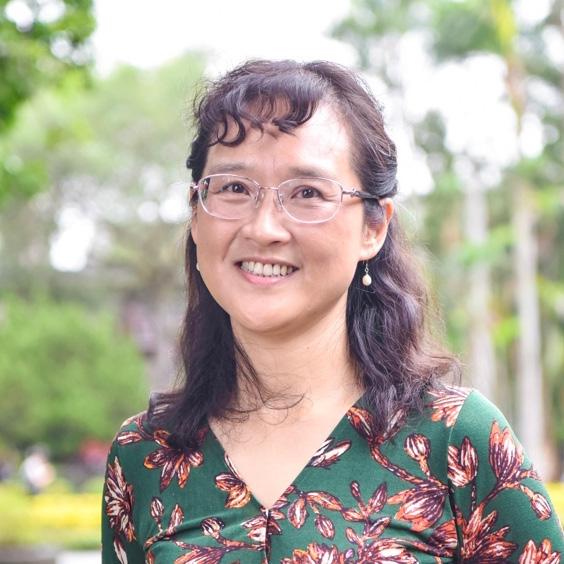
4 minute read
The Hues of Healing
Dr. Shyue-Ying Chiang, an adjunct associate professor in the Department of Fine Arts at NTNU, is a recognized leader in the field of art therapy. Recipient of the 2023 NTNU Outstanding Teaching Award, Dr. Chiang has made significant contributions to the integration of art therapy into both academic and clinical settings, as well as to the broader discourse on the intersections of art, education, and mental health.

Her journey in art therapy began during her time as a junior high school teacher. Observing the potential of art to support emotional regulation and self-expression, she was particularly inspired by an incident with a disruptive but artistically inclined student, who found focus and calm through creative activity. This early experience became a foundation for her future exploration of art as a therapeutic tool.
Recognizing the limited availability of art therapy education in Taiwan at the time, Professor Chiang pursued advanced studies in New York University. There, she trained under Edith Kramer, Laurie Wilson and Ikuko Acosta. As a pioneer in the establishment of art therapy as a profession, Kramer’s frameworks, emphasizing art as both a therapeutic tool and an expressive medium, deeply influenced Dr. Chiang’s practice. Her studies were further enriched by the pioneering work of Liona (Ya-Ching) Lu, Taiwan’s first art therapist, whose efforts helped introduce the discipline to Taiwanese academic and clinical settings.
Returning to Taiwan, Dr. Chiang became instrumental in advancing art therapy as an academic field and in professional training, particularly in education. At NTNU, she teaches courses in the Department of Fine Arts and the Department of Counseling, broadening students’ professional perspectives and laying the groundwork for future programs in creative therapy. Her practical work has focused primarily on children and adolescents, with more recent efforts involving adult populations. Additionally, she has collaborated on communitybased projects, such as art workshops for elderly residents in Nantou, working alongside local educators dedicated to senior art education.
“Art is therapeutic because it is tactile, corporeal, and nonverbal. It creates a direct path to expression that technology, while useful in certain contexts, cannot fully replicate."
In addition to her practical contributions, Dr. Chiang is conducting a longitudinal study on the career trajectories of veteran artists. This research examines the role of talent, mentorship, and opportunity in shaping professional success. The findings not only contribute to academic discourse but also serve her mission of providing effective career counseling to visual arts students. By understanding the factors that enable artists to thrive, she aims to prepare her students for diverse career paths while advocating for curriculum enhancements that reflect the realities of the art profession. This work supports her broader vision of equipping NTNU’s art school with a more comprehensive and robust set of course offerings.
Dr. Chiang has also critically examined the role of technology in art therapy. While acknowledging its value in specific contexts, such as for cancer patients or others unable to use traditional art materials, she also emphasizes its limitations. “Art is therapeutic because it is tactile, corporeal, and non-verbal,” she notes. “When you introduce a technological interface, it adds another filter that separates the individual from the immediacy of expression.” This balanced perspective ensures the core principles of art therapy remain intact while adapting to practical constraints.
In her teaching, Dr. Chiang emphasizes the importance of experiential learning and adaptability. She regularly engages students in workshops that challenge their comfort zones, such as recent ceramics projects that required participants to navigate unpredictable outcomes. These experiences foster resilience and adaptability, essential skills for both artistic practice and broader professional contexts.
Her research and publications, including 100 Applications of Art Therapy Cards and a Chinese-language book on the application of life narrative picture books in art therapy, offering practical insights into the implementation of art therapy across various settings. She has also translated foundational texts, such as Edith Kramer’s Art as Therapy with Children, making seminal theories accessible to Taiwanese audiences.
Dr. Chiang’s career reflects a rigorous and reflective approach to integrating art into education and mental health. By combining theoretical insight with practical application, she has advanced the field of art therapy in Taiwan and beyond. Her work continues to influence students, practitioners, and researchers, deepening understanding of the transformative potential of art.







